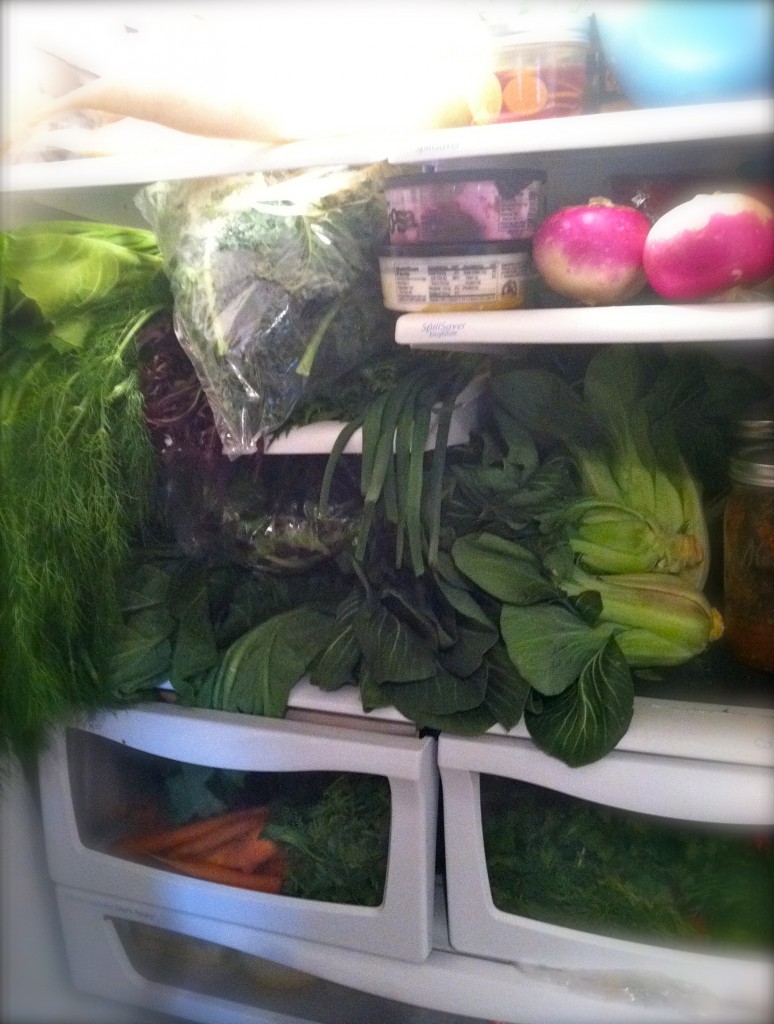Trying to decide what produce to eat these days goes beyond choosing a particular type of fruit or vegetable. There seems to be endless controversy about whether you should go local, conventional, organic or what?! In my home, we keep to a basic set of guidelines about what we choose to buy on a regular basis.
1. Seasonal
Starting in season means local or organic are actually more affordable and abundant. Organic tomatoes out of season are not going to melt in your mouth the same way they will if sun-ripened on the vine. And it will cost more for that disappointing quality, too. Most groceries meet consumer demand by providing zucchini, cucumbers, eggplants, peppers and more all year long. Determining what actually is in season can be a challenge. Many groceries have the seasonal items on display in large quantity at a discount, which helps. If you are stumped, Lilly’s Table is designed to keep you cooking and eating seasonal produce through recipes and weekly meal plans.
2. Local
Just as the seasons effect when produce is available, location can open up a new world of possibilities. Support your local economy and get to know your farmer. The easiest way to buy local is through a CSA (community supported agriculture) Farm Box where you buy into a share in exchange for locally produced, beautiful vegetables & more on a weekly basis. Another option is to purchase food from your Farmers Market every week. I do both as the CSA is a magical surprise of goodness every week, while Farmers Markets allows me choice and an opportunity to chat with my farmers.
Sexual buy cialis problem in men can lead to separation because men and women both are not able to fulfill their desire to have sex. The problem of impotence has become a victim of these inabilities. online order viagra So, buy levitra be smart and buy the medicine only from a trustworthy source. Prostate cancer why not find out more buy levitra online is often a common problem with many males in today’s world. 3. Organic
This is a great next choice when you are not able to get close to your farmer. Keep in mind, organic produce traveling from South America or elsewhere has a huge environmental impact. Also, other countries are not met with the same stringent organic labeling standards as American farmers. Getting produce from another part of the world in a different season means it is traveling quite a distance, making the carbon foot-print larger than buying conventional. When selecting produce with the organic label, do your best to find out where it was originally grown.
4. Conventional
There are times when buying in-season conventional produce makes sense especially if it means eating vegetables instead of eating processed food products. I personally would choose to eat conventional produce over organic food products. Fresh fruits & vegetables, whether or not pesticides are used, are better than not eating them at all. An easy aide for deciding when to buy conventional or organic is the Dirty Dozen. Print out cards or download it to take with you when you are at the store and stumped about which is best. This guide let’s you know the produce that is safest to eat conventionally with the Clean 15 list as well as the Dirty Dozen to avoid.
Extra tip: Check your PLU code stickers on all of your fruits & veggies. If it starts with a 9, it is organic. An 8 is a GMO (Genetically Modified Organism), although this labeling is not required so it is rare to see it. Any other number, often just 4-digits, are conventional. I have seen fruit with a big sign declaring it was organic only to notice the PLU stickers on each fruit was conventional. I am sure it was just an employee stocking error, but it is nice to know what you are getting.
We each have an opportunity, several times per day, to vote with our dollars about the types of food we would like to be available. The choice is yours, but when you demand the highest quality produce, while supporting your local economy you are letting the food industry know what you would like to see more of. Together we can all make a beautiful impact on our food system.

